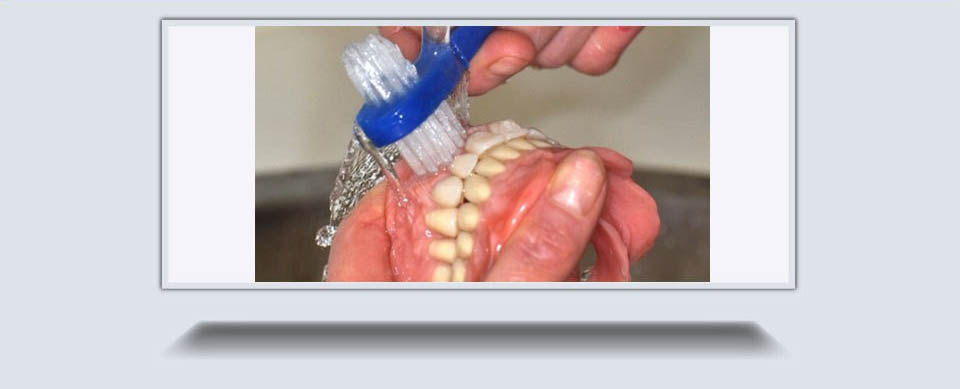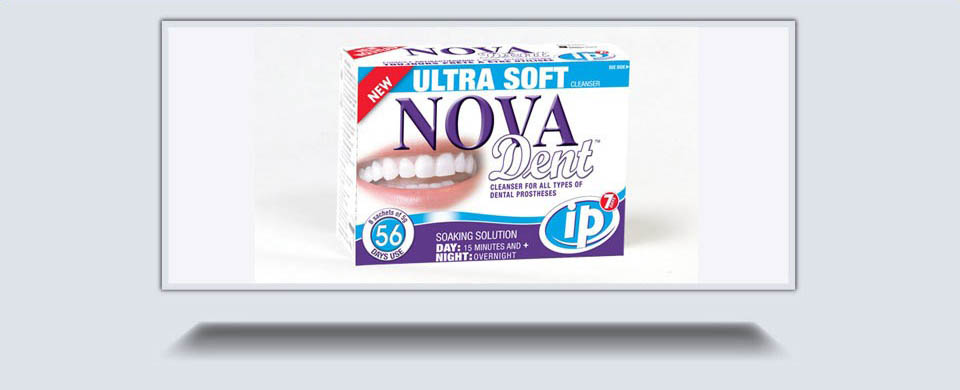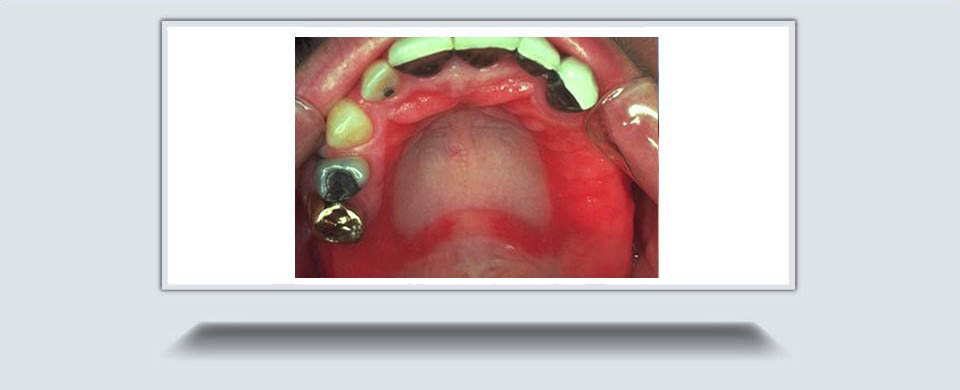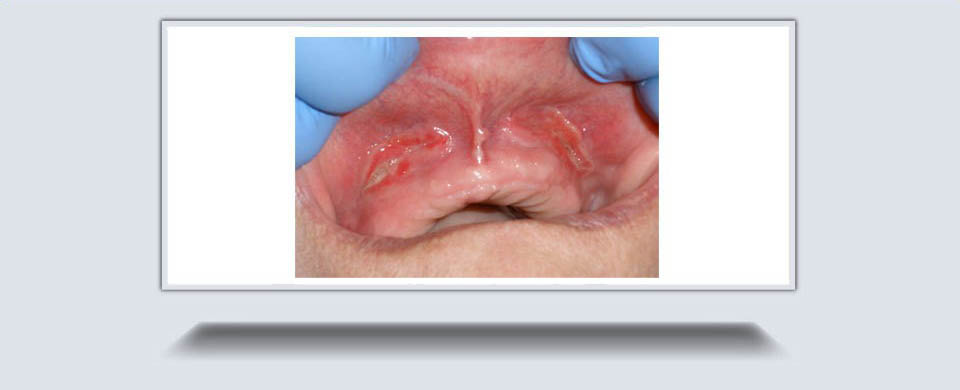Waterdown Denture Clinic Explains How to Care for Your Dentures
Getting Used to New Dentures
Wearing your denture for the first time may seem challenging. It may take some time to get used to the feel of the denture in your mouth. You may experience some irritation or even soreness at first. But as your mouth becomes accustomed to the denture, these problems should lessen. Should you experience any ongoing discomfort, be sure to make an appointment with your Denturist to discuss your concerns.
During the first month, wear your new denture almost constantly – even while you sleep. Afterwards, under normal circumstances, it is best to remove it at night. Removing the denture for at least 4 hours during either the day or night allows the gum tissue to rest and allows normal stimulation and cleansing by the tongue and saliva. This promotes better long-term health of the gums and reduces bone loss.
Your denture may feel odd at first. You may even gag slightly once it is in. It may feel slightly uncomfortable or even loose until your cheek muscles and tongue learn to keep it in place. Within a few days it will begin to feel normal.
You may notice excess saliva. This is a normal response. For the first few days wearing your new denture, try to swallow more frequently. You can solve this problem by sucking on a lozenge frequently. Within a few days, your mouth will become comfortable with the denture and the flow of saliva should return to normal.
Eating is often a challenge for new denture wearers. Start off with soft foods. You may notice that you can’t bite down quite as hard with your denture, or chew in quite the same way. Try taking smaller bites and chew gently to prevent the denture from becoming loose. Soon practice will get you back to eating your favorite foods again!
Download our “Eating with Your New Dentures” handout.
You may find that it is difficult to speak with your new denture. That’s normal. Many new denture wearers find it difficult to pronounce the letter “s” at first. Practice by reading or repeating a few words. Read aloud from a book or magazine in front of a mirror so that you get used to speaking.
Dentures should fit comfortably without the use of adhesives. However, during the first stages of wearing your dentures, you may use some adhesive to provide you with extra comfort and confidence. Discuss this option with your Denturist. We recommend “Secure” denture adhesive. Once you are an experienced denture wearer and you find that you need an adhesive on a regular basis, it may be a sign that your mouth has become smaller and it is time to have your denture relined or replaced. Dentures have a useful life-span of about five years. Your denture, as well as your mouth, should be checked professionally by your Denturist at least once a year to keep both in optimum health.
How to Clean Your Dentures
Do not clean your denture with regular toothpastes. They are too abrasive and will eventually thin the plastic base or teeth, causing premature wear and breakage. Never use bleach to clean or soak your denture. It can discolour the acrylic and weaken the integrity of the denture.
For daily cleaning, a gel, non-abrasive denture paste or mild soap are all appropriate. Use a soft-bristled brush or special denture brush on the denture and on the tongue, gums and the roof of the mouth. This “mouth massage” stimulates circulation and tones gum tissue, while removing the mouth bacteria. It is important to clean off food particles or tartar buildup on both the acrylic teeth and the plate to prevent bacteria and fungus from growing. Always rinse the denture under warm running water before putting it back in your mouth.
Handle your denture carefully when removing or cleaning it. Dropping it even a few inches into an empty sink could break the denture base or a tooth. To avoid this, fill the sink with warm water when removing the denture or when brushing it.
When not wearing your denture, soaking it in warm water or a special denture soaking solution is a good idea. It can clean away any food particles from spaces between the teeth that brushing cannot reach. It can also remove odour-causing bacteria, stains and tartar build-up. We recommend NOVADENT denture cleaner. Prolonged exposure to the air can discolour your denture and dry out the acrylic.
Denture Adjustment and Sore Spots
Adjustments and Sore Spots
Discomfort for the first-time denture wearer and discomfort of a new denture for a long-time wearer is a common occurrence. In fact, you should expect some adjustments the first month after getting your new dentures.
At the first sign of discomfort, don’t be alarmed. If it lasts more than 3 or 4 days, contact our Denturist, Raymond Kulik DD – he will adjust your denture in order to ease your discomfort. At times, you may need several adjustments. Time and patience are your biggest allies.
Do not prolong seeing your Denturist! Sore spots are best correctable at early stages. Most adjustments are free for our existing patients.
Reasons for Sore Spots
- New dentures may cause soreness due to high spots where the denture rests upon your gums. These can be easily handled by Raymond Kulik DD making an adjustment on your denture.
- Certain medications can give you a “dry mouth,” which can cause sore spots.
- Bone chips can appear long after the initial insertion, resulting in discomfort.
- As you get older, your body goes through changes. Tissue becomes more sensitive to pressure, which leads to sore spots.
- Poor oral hygiene can be the reason for denture discomfort. Dentures should be at least rinsed after every meal.
- Drinking alcohol causes dehydration of your oral tissue and can cause loose dentures and sore spots.
To Ease Discomfort
- Rinse your mouth with baking soda or salt solution (one-half teaspoon of either in 1/2 cup of warm water). You can repeat this up to 4 times a day (if you have an existing condition, check with your physician first).
- Leave the offending denture out as much as possible.
- Brush your gums, palate and tongue with a soft-bristled toothbrush after every meal and before going to sleep.
- Avoid irritation. Coffee, spices, citrus fruit, nuts high in the amino acid arginine (especially walnuts), chocolate, and strawberries irritate sore spots.
- Ask Raymond Kulik DD about our fantastic, soothing, natural gel called Oxyfresh.

NEW PATIENT FORMS
Simply download our forms and bring them in with you
FREE CONSULTATION
Book it NOW! or ask a question
BURLINGTON LOCATION
For your convenience, we can see you @Fielding Dental Healthcare




